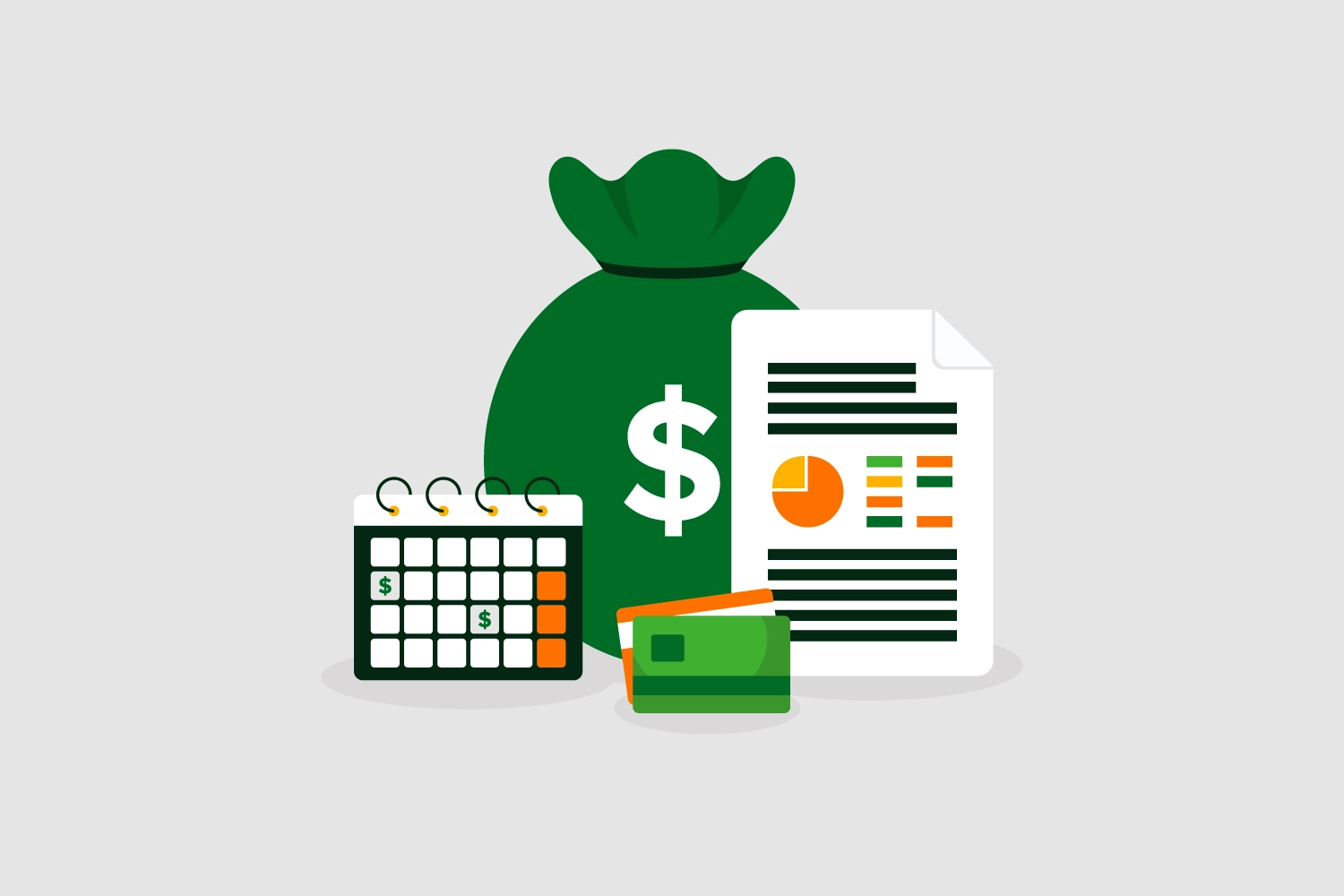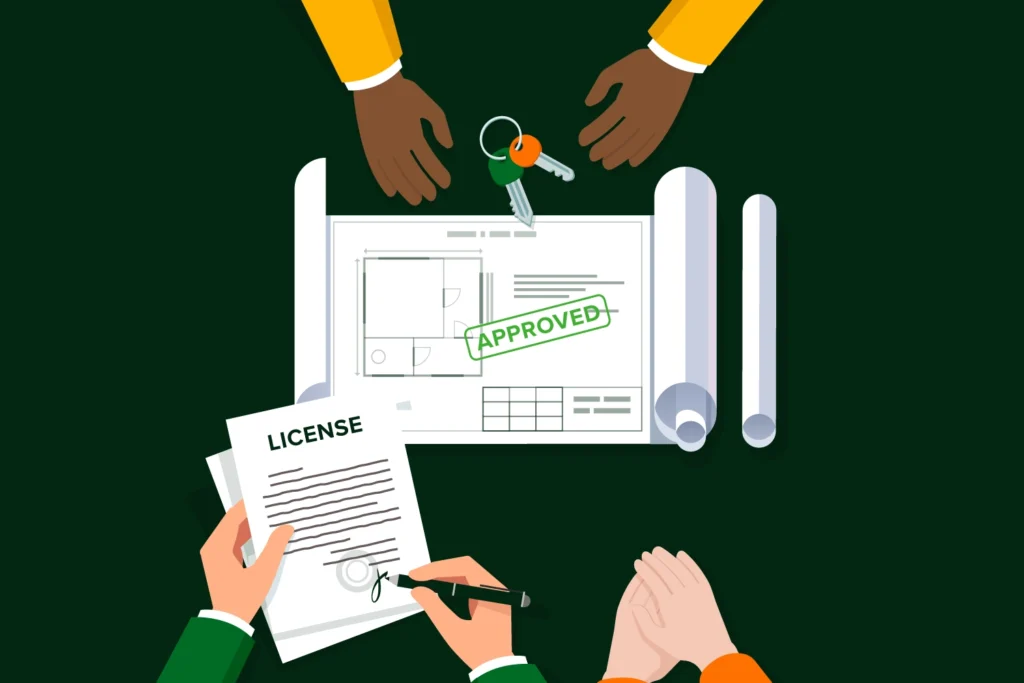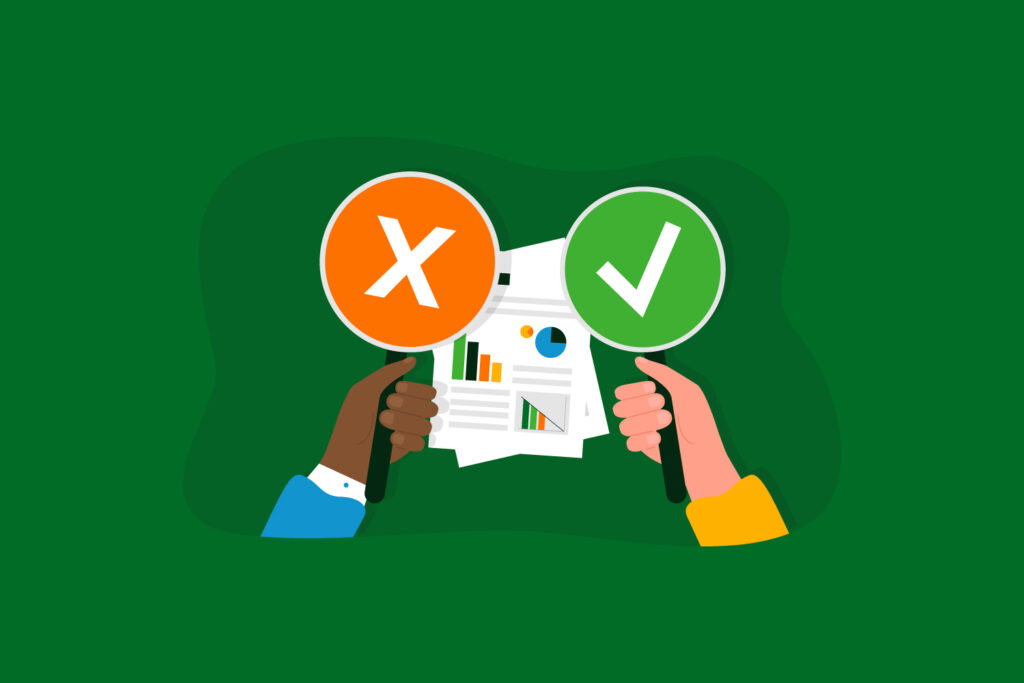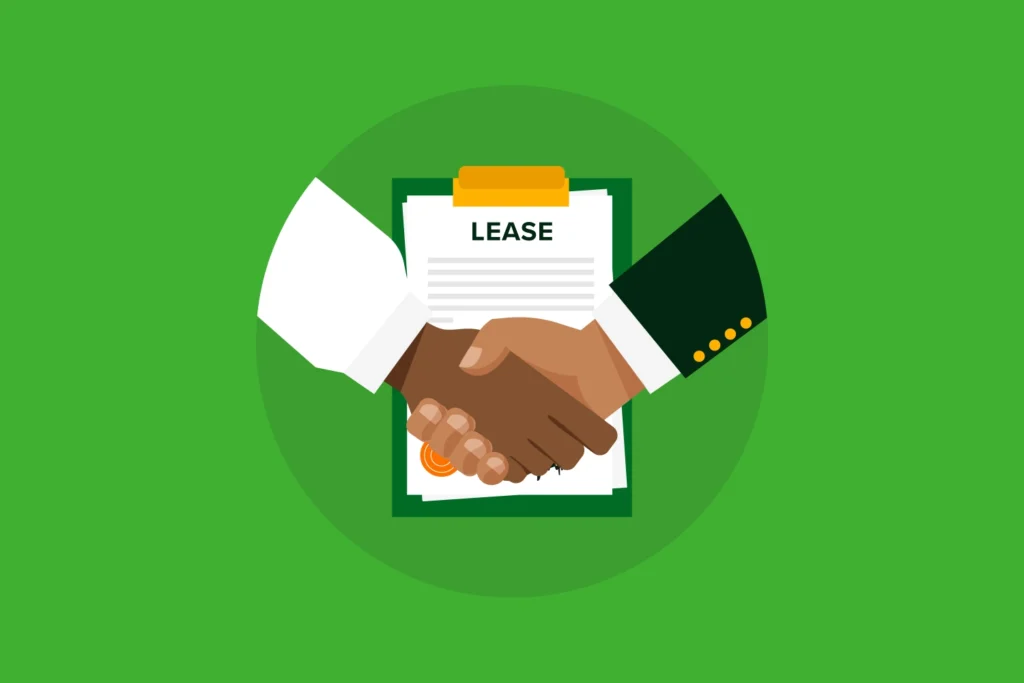Disclaimer: The articles published here on the City of Eau Claire Economic Development Division website are meant to be a helpful starting point as you explore doing business in our community. They’re not the final word on rules, requirements, or what’s best for your unique situation. We always recommend checking in with legal, financial, or other professionals for advice tailored to your business.
You’ve got the business idea, the passion, and the grit to make it happen… but what about the funding? Whether you’re opening a cozy coffee shop downtown, launching a tech startup out of your garage, or turning a side hustle into a full-time gig, figuring out how to pay for all of the expenses that come along with opening your business can feel even more intimidating than all of the other steps. The good news is Eau Claire has a variety of resources to help you get off the ground.
Let’s break down the funding sources and financing options available to startups in Eau Claire, Wisconsin so you can find the right fit and focus on building your dream.
1. Traditional Bank Loans
Sometimes, the best place to start is with a familiar face, and in Eau Claire, that means local banks and credit unions. Institutions like Royal Credit Union, WESTconsin Credit Union, Charter Bank, and Prevail Bank have long histories of supporting small businesses in our community. They know the local economy, they’re invested in regional growth, and they’re often more approachable than big-name national banks.
Most offer a range of financing options, including:
- Term loans for larger one-time purchases
- Lines of credit to help with day-to-day cash flow
- Equipment financing
- Commercial real estate loans
- SBA-backed loans
These lenders are especially well-suited to entrepreneurs with solid credit, some collateral (such as property or equipment), and a clear plan for how the money will be used. If you can show that your business is viable and ready to grow, they’re often willing to work with you.
So, what should you bring to the table? Some advice: Come prepared. That means bringing a well-thought-out business plan, realistic financial projections, plus a solid understanding of how much money you need and what you’ll use it for to your appointment.
You don’t have to be a finance whiz, but you do need to be able to answer questions like:
- What are your monthly expenses?
- How will you repay the loan?
- What kind of growth do you expect in the next 1–3 years?
- What’s your break-even point?
If you’re not sure where to start, connect with free resources like the Small Business Development Center (SBDC) at UW–Eau Claire, Western Dairyland Economic Opportunity Council, or other local partners who specialize in helping entrepreneurs build lender-ready plans.
2. Local Loan Programs
Next up: local lenders and loan programs that are based here in the community. These are great places to start because they know Eau Claire and really understand where startups fit into the local market. No matter if you’re launching your first venture or expanding a side hustle, these programs can give you a strong financial foundation.
City of Eau Claire & Regional Business Fund Loan Programs
Think of these loans as flexible financing tools designed to support small business growth. They’re especially helpful if you’ve already talked to a bank but found out the loan amount they’re willing to offer doesn’t quite get you across the finish line. That’s where the City’s and Regional Business Fund’s (RBF) revolving loan programs can step in to help close that gap.
Loan amounts typically range from $10,000 to $100,000+ and can be used for things like:
- Purchasing or renovating commercial property
- Buying machinery or equipment
- Building up inventory
- Expanding operations
- Creating or retaining local jobs
These aren’t grants, so you’ll need to repay the loans over time. But the interest rates are typically lower than what you’d find through traditional lenders, and the repayment terms are often more flexible. That can be a big help for businesses trying to manage cash flow in the early stages.
These loans are specifically designed to support projects that help Eau Claire grow, whether that involves revitalizing a downtown storefront, bringing new jobs to the area, or simply offering something new the community needs.
To qualify, you’ll usually need to show:
- A detailed business plan
- Some personal investment in the project (often 10-20%)
- A plan for job creation or positive economic impact
In many cases, your loan package (also called a “financial stack”) will include a combination of private financing and public funds working together to support your business. When you’re ready to apply, both the City and RBF staff work closely with local banks and credit unions, so they can help walk you through the process step by step.
3. Grants
Unlike loans, grants offer financing that doesn’t need to be repaid, which makes them a huge win for early-stage businesses trying to stretch every dollar. That said, most grants are competitive, often requiring detailed applications and sometimes coming with conditions like regular progress reports or matching funds. Still, if you’ve got a strong idea and a compelling plan, grants can give your business a serious boost.
State & Federal Grant Programs
While the City of Eau Claire doesn’t currently offer direct grant programs for startups, there are several statewide and national opportunities that local entrepreneurs may be eligible for:
- WEDC Small Business Development Grant: This program, offered by the Wisconsin Economic Development Corporation (WEDC), provides funding to help small businesses cover costs associated with launching or expanding their operations. Grants typically support projects that involve equipment purchases, leasehold improvements, or other capital investments that create jobs and boost local economies. Businesses usually need to partner with a local community or economic development organization—like the City of Eau Claire—to apply, but it’s a great option if you’re planning a project that will have a lasting impact on the community.
- USDA Rural Development Business Programs: If your business is located in a rural area or tied to agriculture, food systems, or renewable energy, you may be eligible for USDA programs like the Rural Microentrepreneur Assistance Program (RMAP) or Value-Added Producer Grants (VAPG). These are especially helpful for food producers, cooperatives, and farm-adjacent startups.
- Small Business Innovation Research/Technology Transfer Grants (SBIR/STTR): If your business is developing a new product, process, or technology—especially in sectors like biotech, clean energy, or defense—you might qualify for these federal R&D grants. They offer six-figure funding for proof-of-concept, prototyping, or commercialization and are available through agencies like the National Science Foundation, NIH, and NASA.
- Wisconsin Women’s Business Initiative Corporation (WWBIC): While WWBIC is primarily a lender, they also offer occasional small business grants and relief programs, particularly for women-, minority-, and veteran-owned businesses. Keep an eye on their website or join their newsletter for the latest opportunities.
- Local Utility Incentives: Don’t overlook Xcel Energy, Focus on Energy, or other local utilities, which sometimes offer small grants or rebates for energy efficiency upgrades, renewable energy installations, or sustainability-focused improvements to commercial spaces.
Many grants, especially federal ones, require you to submit a Data Universal Numbering System (DUNS) number or be registered with SAM.gov (the System for Award Management). Don’t let the paperwork scare you off though; plenty of local partners can help walk you through it.
4. Pitch Competitions
If you’re the type who shines in front of an audience, pitch competitions can be a fun and potentially lucrative way to fund your startup. These events let you present your business idea to a panel of judges in exchange for cash prizes, in-kind services, and—maybe most importantly—valuable exposure.
The Idea Challenge
Hosted by the Eau Claire Area Economic Development Corporation (EDC), The Idea Challenge is designed for early-stage entrepreneurs who have a solid idea but aren’t quite sure how to bring it to life. Unlike most pitch competitions, you don’t need a full business plan or finished product, just a promising concept and the willingness to grow.
Winners can receive up to $5,000 in seed funding, business coaching and access to professional services like legal, marketing, and accounting support. Finalists also benefit from connections to local lenders, investors, and startup resources. Past participants have worked on everything from consumer goods and tech innovations to agriculture and manufacturing products. If you’ve got a prototype or even just a napkin sketch, this is a great place to start.
HATCH Business Pitch Competition
Organized by the Chippewa Falls Economic Development Corporation, the HATCH Pitch Competition is designed to help early-stage entrepreneurs in the Chippewa Valley get their ideas off the ground. This regional event invites participants to present their business concepts to a live audience and panel of judges for a chance to win up to $5,000 in seed funding. The competition is open to startups of all kinds, but special consideration is often given to ideas with strong growth potential or community impact. Whether you’re launching a tech startup, a food venture, or a service-based business, HATCH gives you a platform to share your vision, get feedback, and build valuable local connections. Even if you don’t win, the experience and exposure can help move your idea one step closer to reality.
Jump-Start Downtown Business Competition
Run annually by Downtown Eau Claire, Inc. (DECI), the Jump-Start Downtown Business Competition is a local favorite that supports entrepreneurs ready to open or expand a business in the downtown district. To participate, you’ll submit a business plan and pitch your concept to a panel of judges for a shot at up to $5,000 in cash awards, free professional services, and high visibility in the Eau Claire business community. Plus, prizes also include help with marketing, legal support, and web development—everything you need to get your doors open.
Your concept must be tied to a downtown Eau Claire location, and DECI prioritizes projects that bring fresh energy to the heart of the city. Even if you don’t win, you’ll gain valuable experience, feedback, and community connections that can help your idea move forward.
WiSys Quick Pitch
If you’re a student at UW–Eau Claire, the WiSys Quick Pitch competition gives you the chance to share a big idea, research project, or innovation in just 90 seconds. Hosted by WiSys, this fast-paced event rewards concise, compelling pitches with cash prizes and exposure to mentors and startup support across the UW System.
Participants compete for $300-$1,000, and winners are invited to present at the WiSys SPARK Symposium, where they can connect with faculty, business leaders, and potential collaborators. Ideas can range from academic research and tech inventions to social ventures or business models. Quick Pitch is ideal for student entrepreneurs in any major who want to practice telling their story and take the first step toward launching a business. WiSys encourages a wide range of submissions, and past participants have pitched everything from mobile apps and medical devices to sustainable packaging and social justice initiatives.
5. Angel Investors & Venture Capital
Looking to scale fast and take your business to the next level? Some startups—especially those in tech, innovation, or high-growth industries—turn to outside investment to accelerate their plans. That could mean working with an angel investor, a venture capital (VC) fund, or a startup accelerator that provides both funding and mentorship.
Now, Eau Claire isn’t Silicon Valley, but there are a few investors and regional groups who take an active interest in promising startups from western Wisconsin.
Angel Investors: Who They Are & What They Do
Angel investors are typically individuals with business experience and capital to invest in early-stage companies. They’re often looking for entrepreneurs with a strong idea, a scalable business model, and a clear plan to grow. In return for their investment, they usually receive equity, or a share of ownership in your business.
The upside is you might get more than just funding; you could gain a mentor, a connector, or even a champion who believes in your mission. The tradeoff is you’re no longer the sole decision-maker for your own business though, so it’s important to find someone who aligns with your values and vision.
Where to Look for Angel & VC Support
Here are a few places that are helping bridge the gap between local startups and capital:
- Chippewa Valley Angel Investors Network (CVAIN): This group of accredited investors focuses on supporting early-stage companies in western Wisconsin—particularly those with high-growth potential in industries like technology, healthcare, advanced manufacturing, and consumer products. Beyond just funding, these investors often provide mentorship, industry connections, and strategic guidance to help businesses scale. If you’re seeking equity investment and have a strong business model with room to grow, connecting with this network could open some big doors.
- WiSys VentureHome – Eau Claire: This startup hub for innovators and entrepreneurs, located right here in Eau Claire, connects local startups with resources across the state, including funding opportunities, mentorship, and help navigating the investor landscape. If your business has a research or tech component, they’re definitely worth talking to.
- StartingBlock Madison: While based in Madison, this organization is part of a broader Wisconsin entrepreneurial ecosystem that sometimes supports startups from this region—particularly in tech, health, and social innovation. They host pitch events, offer investor connections, and provide accelerator-style programming.
- Wisconsin River Business Angels & Golden Angels Investors: These angel groups focus on investing in early-stage companies throughout Wisconsin. While they often look to larger metros like Madison or Milwaukee, they occasionally fund rural or regional startups that are ready to grow.
- University- & State-Affiliated Programs: If your business has a university tie-in, check out UW System entrepreneurial programs or WEDC’s Capital Catalyst program, which supports local investment funds.
A Word of Caution (& Encouragement)
Taking on investors isn’t for everyone. Outside capital often means giving up some control of your business and being accountable to others, but if your goal is to grow quickly or develop a product that requires a lot of upfront investment, it could be the right move.
Either way, it’s important to weigh the pros and cons, and local partners are happy to help you think it through.
6. Crowdfunding & Community Support
If you want to test your idea and raise money at the same time, crowdfunding could be your answer. Platforms like Kickstarter, Indiegogo, and GoFundMe make it possible to pitch your business directly to the public—friends, family, future customers—and invite them to support your launch. It’s not just about money either; it’s also a great way to build buzz and validate your idea before you open your doors.
Crowdfunding works especially well for:
- Creative ventures (like art studios, music projects, or makerspaces)
- Food-based businesses (bakeries, food trucks, or farm-to-table restaurants)
- Retail shops with a strong community vibe
- Mission-driven projects with a social or environmental impact
How It Works
Each platform has a slightly different model:
- Kickstarter is rewards-based, meaning supporters (called “backers”) pledge money in exchange for a product, experience, or perk like a free coffee for a week, exclusive merch, or early access to your service. This platform is all-or-nothing, so you only get the funds if you hit your goal.
- Indiegogo offers more flexibility with both fixed and flexible funding models, which may be better if you’re not sure how much you’ll raise but still want to keep whatever you get.
- GoFundMe is donation-based and best for community causes, family-run ventures, or unexpected costs. There’s usually no reward involved, just people who want to help you succeed.
Some entrepreneurs even combine crowdfunding with local launch events, pop-up sales, or social media campaigns to build excitement and bring in backers. Eau Claire’s strong sense of community can be a real advantage here; local residents love to support homegrown businesses and are often willing to pitch in to help a neighbor’s dream come to life.
Keep in mind, crowdfunding takes work. Running a crowdfunding campaign is like a full-time marketing job (at least temporarily). You’ll need compelling photos or video, a clear message, and a strategy to get the word out. But if you’ve already built up a following or you’re willing to hustle to create one, it can be a powerful way to raise startup capital while creating an early customer base.
🔗 Start Here:
Summing It Up
Finding the right funding is one of the biggest challenges new business owners face, but Eau Claire offers more options than you might think. From local grants and micro-loans to regional lenders and state programs, there are multiple paths to help turn your idea into reality. Each source has its own purpose, whether it’s bridging a startup gap, fueling growth, or giving you the flexibility to invest in what matters most, so start exploring them now.
Article Cover Illustration by Vecteezy





